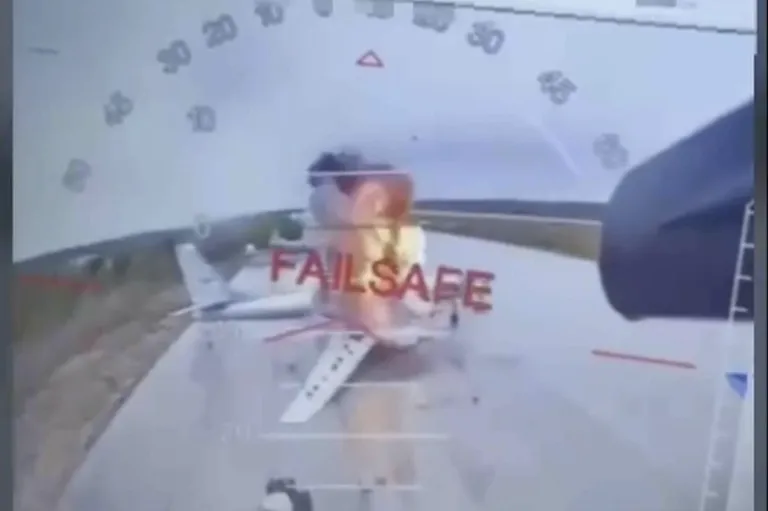
作者/Author(s): Franz-Stefan Gady
網站來源/Source: Foreign Policy
日期/Date: 06/04/2025
關鍵字/Keywords: 軍事、烏克蘭、俄羅斯
摘要:
烏克蘭近日執行了籌劃已久的無人機行動,成功襲擊多個俄羅斯境內的戰略轟炸機基地,有些甚至深入俄羅斯本土的據點。
- 這項行動代號為「蜘蛛網(Operation Spider's Web)」,摧毀了俄軍主要用來攻擊烏克蘭城市的轟炸機。
- 烏克蘭早在數月前便開始將第一人稱視角無人機藏在可拆卸屋頂的木箱內,隨後透過地下網路與毫不知情的俄羅斯卡車司機,將「木製小屋」運送至指定地點。
- 待時機成熟,部署在俄境內的烏克蘭特工便會一起遠端開啟木箱屋頂,使用商用及開源技術發動攻擊。部分無人機更配有人工智慧,能在失去訊號後自行完成任務。
- 雖然這次行動展現出極高的複雜度、創意與勇氣,但對俄軍在烏行動的實質影響其實有限。
- 俄羅斯以前大多使用轟炸機攻擊烏克蘭城市,但今年開始更仰賴無人機與彈道飛彈進行攻擊。
- 烏克蘭早在2024年就已經具備發動「蜘蛛網」行動的條件,但因高度依賴美國支援,加上美方顧慮該行動可能引起俄方核報復意圖,因此遲遲未下令執行行動。
- 如今俄羅斯被迫投入更多資源加強空軍基地與關鍵基礎設施防護,但前線因尚有空防部署,所以應該不會受到明顯影響。
- 然而,這次行動對俄羅斯有長遠的影響。
- 受損或摧毀的轟炸機已無法重建生產,大大打擊了俄羅斯的遠程兵力投射。
- 「蜘蛛網」行動也重創俄軍聲望,凸顯小型不對稱作戰平台亦能有效打擊大型傳統軍力。
- 由於戰爭成本不斷上升且成果有限,俄羅斯可能不得不重新考慮是否繼續這場戰事。俄方或許難以再承擔經濟與政治上的代價。
- 某種程度來說,「蜘蛛網」行動是一種新型戰爭型態,但它更像是經典「突襲戰(raid)」在 21 世紀的改良版本,而且意義重大。
- 突襲行動通常包含幾個階段:滲透、奇襲與迅速撤離。相對弱勢的一方常利用突襲對敵方施加壓力、嚇阻或破壞。突襲的一大優勢在於可透過少量兵力打擊強大的對手。
- 「蜘蛛網行動」凸顯出現代科技(如無人機)可實施高衝擊力、遠距離的突襲任務。此次行動深入俄羅斯境內打擊關鍵基礎設施,暴露了俄方防禦體系的漏洞,也弱化了前線與後方的差異,因為俄羅斯必須重新調配資源,以減少漏洞,改善整體防禦。
- 這也說明了一個非核國家也可以有效攻擊擁核大國的戰略資產,並在小心避免核升級的同時制約其行動。
- 然而,烏克蘭「蜘蛛網」行動的成功,可能會增加俄羅斯使用核升級的機會。俄羅斯於去年修訂了核原則,包括無核武國家在擁核國家參與下的進犯將被視為聯合攻擊,以及俄羅斯在遭遇大規模空中攻擊時可動用核武加以回應。
Summary:
Ukraine executed a long-planned drone operation, striking Russian strategic bombers at multiple locations, some even deep inside Russian territory.
- The operation codenamed "Spiderweb," destroyed bombers that Russians used primarily to attack Ukrainian cities.
- Ukraine executed the operation by smuggling kamikaze-style FPV drones into Russia for several months. The drones were transported inside wooden cabins with detachable roofs through clandestine operations or using unsuspecting Russian truck drivers.
- When it was time to attack, Ukrainian operatives inside Russia opened the cabin roofs remotely and launched the drones toward their targets using commercial and open-source technologies. Some drones even depend on AI to complete their tasks when they lose signal.
- Despite its complexity, creativity, and bravery, the operation had only a limited impact on Russia's operations in Ukraine.
- Russia used to rely heavily on bomber formations to attack Ukraine before 2025, but it now depends more on drones and ballistic missiles.
- Ukraine is reluctant to launch Operation "Spiderweb" in 2024 despite planning it for a long time due to dependence on U.S. assistance and U.S. concerns about Russia's nuclear deterrent.
- Russia must now allocate more resources to fortify its air bases and other critical infrastructure. However, due to the many air defense systems, Russian air cover on the front line will not be affected.
- Yet, the operation has long-term implications for Russia.
- Since the destroyed or incapacitated bombers are no longer produced, it will undermine Russia's long-range force projection.
- The operation undermined the Russian military's prestige and credibility. It also proved that small, asymmetric platforms can destroy large, conventional platforms.
- Russia may have to reconsider whether or not to continue the war due to increased costs and limited gains. It may be unable to shoulder the economic and political costs anymore.
- Operation "Spiderweb" is a new type of warfare for some, but it is more of an adaptation of the classic military raid to the 21st century. However, it was significant.
- Raids usually involve several stages: infiltration, surprise attack, and quick withdrawal. Underdogs usually utilize raids to pressure, coerce, or sabotage an enemy. One advantage of raids is that they typically involve only a small number of forces to weaken a larger opponent.
- Operation Spiderweb demonstrated that modern technologies like drones could execute high-impact, long-distance raids. It exposed loopholes in Russian defense when it struck critical infrastructure deep inside Russian territory. Consequently, it softened the difference between frontline and rear as Russia must reappropriate resources to reduce its vulnerabilities and improve its defenses.
- It also illustrates a non-nuclear state could attack a nuclear power's strategic assets and restrain its behavior while carefully avoiding nuclear escalation.
- However, Ukraine's success may increase the chances of Russia using nuclear escalation. Russia revised its nuclear doctrine to attack any nuclear-backed country even if it does not possess atomic weapons.
